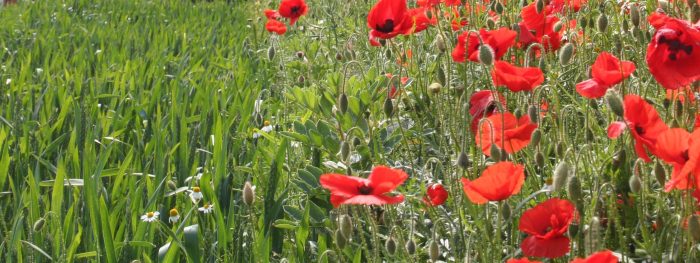
The return of nature
20th February 2017Posted by Jim Orson, NIAB TAG and BCPC Board of Management 5 February 2017
I have nicked the title of this blog from Jesse Ausubel of the Rockefeller University in the US. He has long held the view that technology liberates the environment. His papers include some on agriculture and forestry but there are also many papers on other industries, all with this same overriding conclusion.
The basis of his argument is the generally accepted thesis that agriculture has been the greatest destroyer of nature. It is quite clear to me that the initial decision to cultivate a natural habitat has by far the greatest impact on nature. How that land is then farmed is of secondary importance. Hence, in terms of supporting nature, the inevitable conclusion is to cultivate the minimum area necessary to feed the world. This is where technology can come in, lifting yields whilst also maintaining or improving human health and the environment.
Ausubel in a recent review quotes a paper by two geographers who conclude that technology has increased yields in reasonably responsive situations which has resulted in the abandonment of marginal agricultural lands. In the former Soviet Union and Eastern Europe this process has released at least 30 million hectares and possibly as much as 60 million hectares back to nature.
Another interesting reference in the same review quotes a paper arguing that if we keep lifting average world yields at the current rate, stop feeding maize to cars (ethanol), restrain our diets slightly and reduce waste, then an area the size of India, or of the United States east of the Mississippi, could be released globally from agriculture over the next 50 years or so. That would make a huge difference to the natural environment.
In the face of such a prize, it is worth asking the question why so many are absolutely committed to preventing any advances in agricultural technology. This is very much a one-eyed view not dissimilar from those who thought encouraging low carbon dioxide producing diesel cars would reduce the threat of global warming without side effects. The world is really too complicated for single interest groups: surely they could think a little more laterally. I realise that they must keep their subscriptions coming in but they must also think of the possible disservice they may be doing to the wider environment.

We are constantly told that organic farming is better for biodiversity than conventional farming. However, the UK data I have seen suggest that organic arable crops have the same impact on biodiversity as responsible conventional farming but, of course, conventional arable crops produce around 50% more output per unit area. The difference between the systems in the UK, in terms of biodiversity, is down to the value of the clover/grass fertility building crops in organic systems. These can be used to graze sheep and cattle. However, cattle are five times less energy efficient in producing meat than chickens. Hence, the land devoted to fertility building in organic systems may be far more biodiversity friendly if a minority of it was farmed conventionally and the produce fed to chickens (or pigs), with the majority of the area being specifically devoted to increasing biodiversity. I realise that I may be guilty of being somewhat single-minded on this issue because grass/clover leys may have positive impacts on the soil that are not provided by other crops.
I suspect that the green blob hate the word ‘efficiency’ but that word is the key to a better future for humans as well as the natural environment. New technological approaches must be tested and adopted, if found safe, economic and practical. It is really the only way to achieve a greener world.

